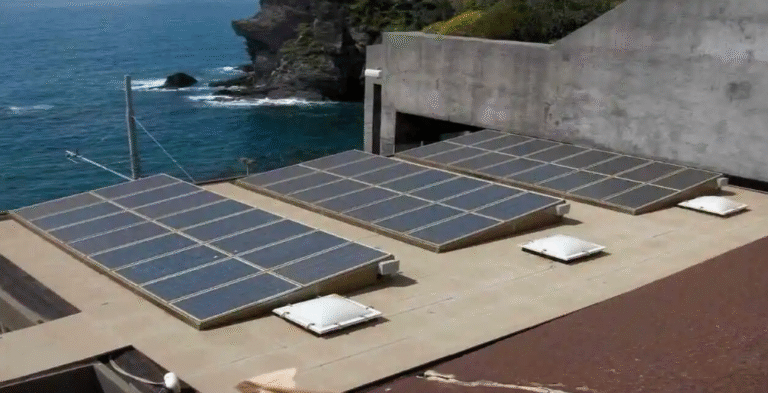Solar energy has become a pivotal component in the shift toward sustainable energy solutions, and its integration often involves close collaboration between solar providers and local governments. For homeowners and businesses, understanding how these partnerships work can clarify the process of going solar and help maximize the financial benefits available. Incentive programs, permits, and local regulations all play a crucial role in determining the feasibility and cost-effectiveness of solar installations.
By working directly with municipal agencies and regulatory bodies, North Valley Solar Power helps streamline processes for clients, ensuring installations meet legal standards while allowing participants to take advantage of available rebates and credits. We will explore the mechanisms through which solar power company coordinates with local governments and the ways incentives encourage solar adoption, highlighting the value of strategic partnerships in fostering sustainable energy growth.
Collaboration and Incentives: The Role of Solar Providers
- Navigating Local Permits and Regulations
Solar providers act as intermediaries between property owners and municipal authorities to secure the necessary permits for installation. Every city and county has its own set of building codes, zoning regulations, and electrical standards that must be met before a solar project can proceed. Providers prepare and submit permit applications on behalf of clients, ensuring that system designs comply with safety and regulatory requirements. In areas like Yuba City, California, understanding the local building codes is crucial for avoiding delays and fines. Solar providers also coordinate inspections and address any compliance issues, reducing the administrative burden on homeowners and businesses. This cooperation ensures installations are safe, legally compliant, and optimized for energy production. - Leveraging Local Incentive Programs
Local governments frequently offer incentives to encourage solar adoption, ranging from property tax exemptions to rebates and low-interest loans. Solar providers maintain up-to-date knowledge of these programs and help clients identify eligible incentives. For instance, California residents may be eligible for programs that offset a portion of the installation costs through state or municipal rebates. Providers assist in calculating potential savings, guide customers through the application process, and submit the required documentation. By integrating these incentives into project planning, solar providers make solar energy more accessible and financially attractive, helping property owners reduce upfront costs and improve the long-term return on investment.
3 • Collaboration with Utility Companies
Beyond local government agencies, solar providers often work closely with utility companies to ensure grid integration and compliance with net metering policies. Net metering enables homeowners to receive credit for the excess electricity generated by their solar systems, thereby reducing their overall energy expenses. Providers coordinate interconnection applications with utilities, verify that system designs meet technical requirements, and schedule inspections to finalize the approval process. This collaboration ensures that energy flows smoothly between the solar system and the grid, maximizing efficiency and financial benefit. In some regions, utility companies also offer additional incentives, such as rebates for peak energy contributions or reduced demand charges, which providers help clients access.
4 • Advocating for Streamlined Approvals
In many communities, the process of installing solar systems can be slowed by complex permitting and approval procedures. Solar providers often collaborate with local governments to advocate for streamlined processes, suggesting ways to reduce bureaucratic hurdles and accelerate adoption. This may include standardizing permit requirements, introducing online application systems, or implementing pre-approved designs for common residential and commercial projects. By working collaboratively with municipal offices, providers help establish policies that benefit both property owners and the wider community, making solar energy more attainable and efficient to implement.
5 • Educational Outreach and Community Programs
Solar providers often partner with local governments to promote awareness of the benefits of renewable energy. Educational initiatives, workshops, and informational campaigns inform residents about the financial, environmental, and technological advantages of solar power. Providers may participate in community programs that offer consultations, on-site demonstrations, or guidance on incentives, helping potential adopters make informed decisions. This outreach promotes stronger community engagement, enhances participation in incentive programs, and promotes sustainable energy practices across neighborhoods and municipalities.
6• Supporting Long-Term Sustainability Goals
Local governments often establish sustainability targets, such as reducing greenhouse gas emissions or achieving renewable energy benchmarks. Solar providers contribute to these objectives by facilitating the installation of systems that generate clean energy and reduce reliance on fossil fuels. By tracking energy production, providing data reports, and ensuring compliance with local energy standards, providers help governments monitor progress toward environmental goals. This partnership aligns municipal priorities with the interests of individual property owners, creating a mutually beneficial framework for expanding renewable energy infrastructure.
7 • Financial Planning and Incentive Optimization
Solar providers also offer financial guidance to help clients maximize the benefits of incentives. This includes calculating the impact of federal tax credits, state rebates, and utility-specific programs on overall project costs. Providers help property owners understand financing options, such as solar loans, leases, or power purchase agreements, and integrate incentives into these models to reduce monthly expenses. By combining regulatory compliance with financial optimization, solar providers ensure that installations are both technically sound and economically advantageous, enhancing the appeal of renewable energy solutions.
Solar providers serve as vital intermediaries between property owners and local governments, navigating permits, regulations, and incentive programs to facilitate the adoption of solar energy. By leveraging local and federal incentives, coordinating with utility companies, advocating for streamlined approvals, and educating communities, providers make solar installations more accessible, efficient, and financially viable. These partnerships support local sustainability goals, enhance property values, and promote long-term environmental benefits. Residents and businesses benefit from reduced energy costs, regulatory compliance, and a smoother installation process. The collaboration between solar providers and local governments ultimately strengthens the adoption of renewable energy, ensuring a cleaner and more sustainable future for communities.
Source:Lovinghananews.com


